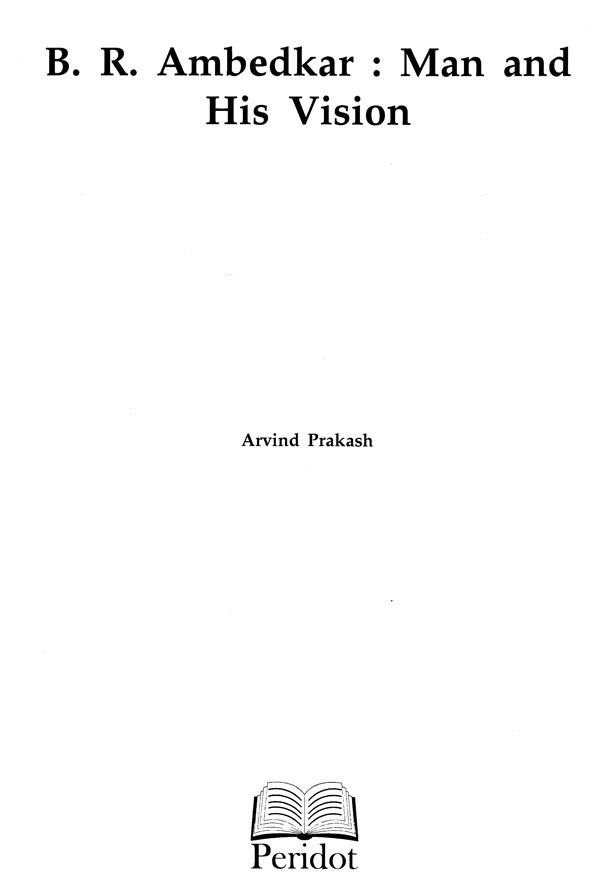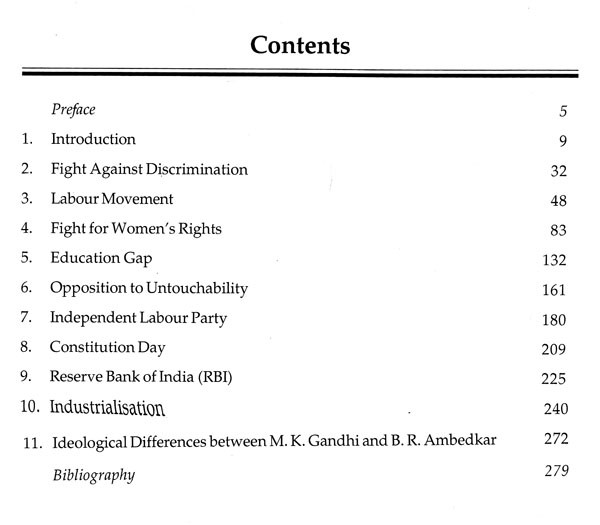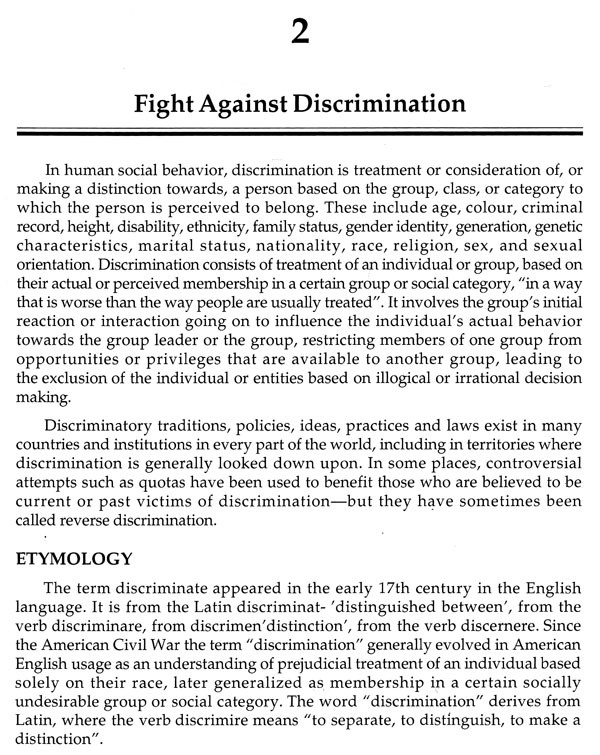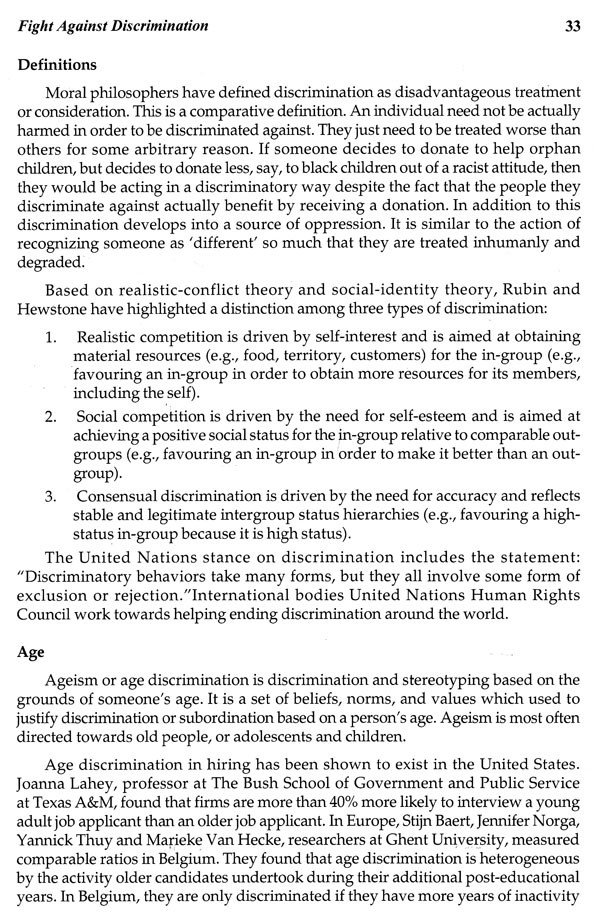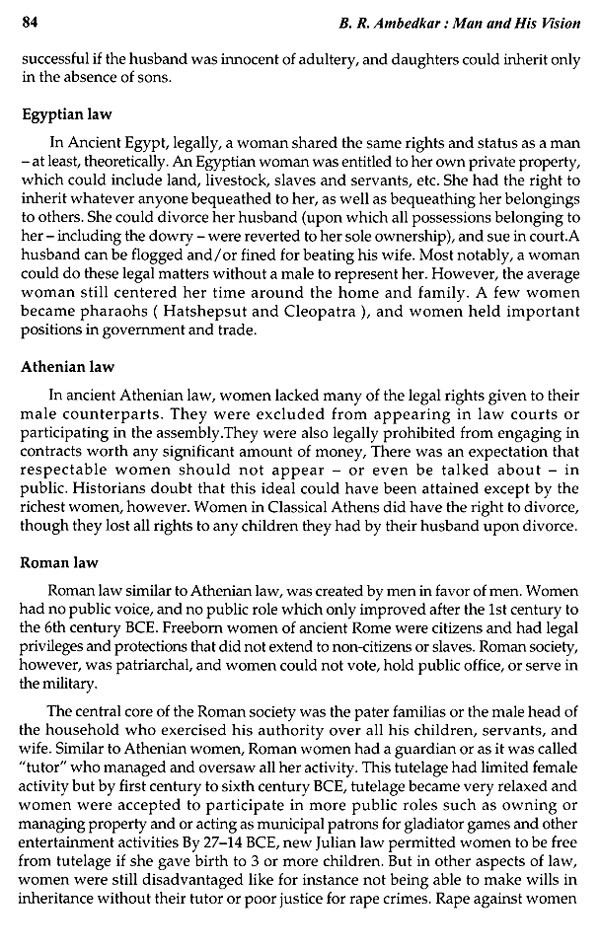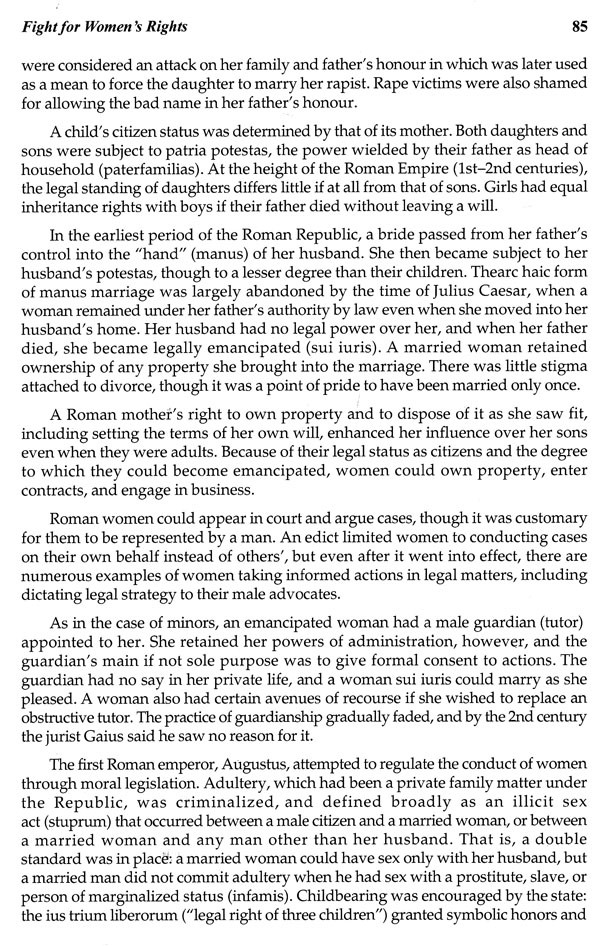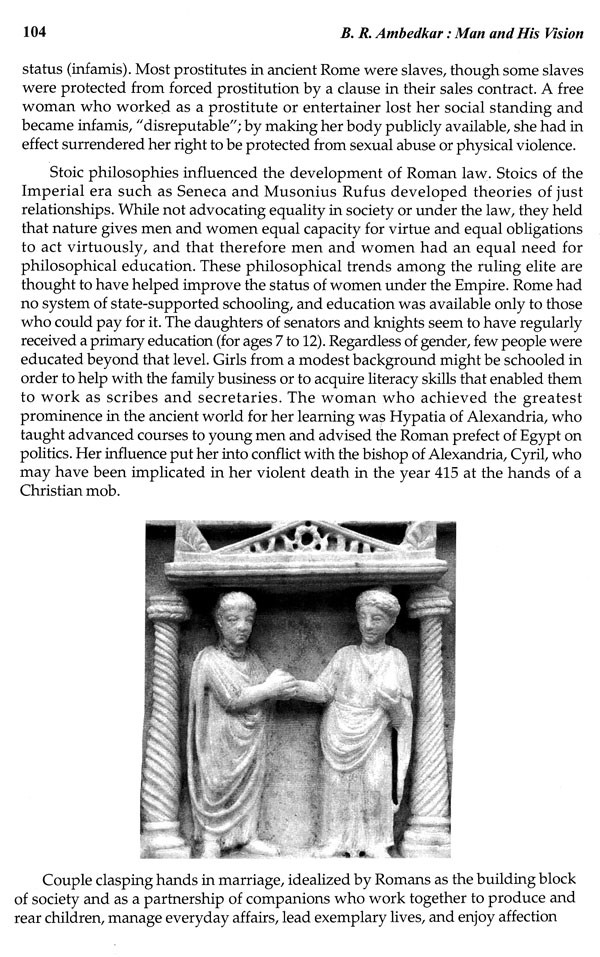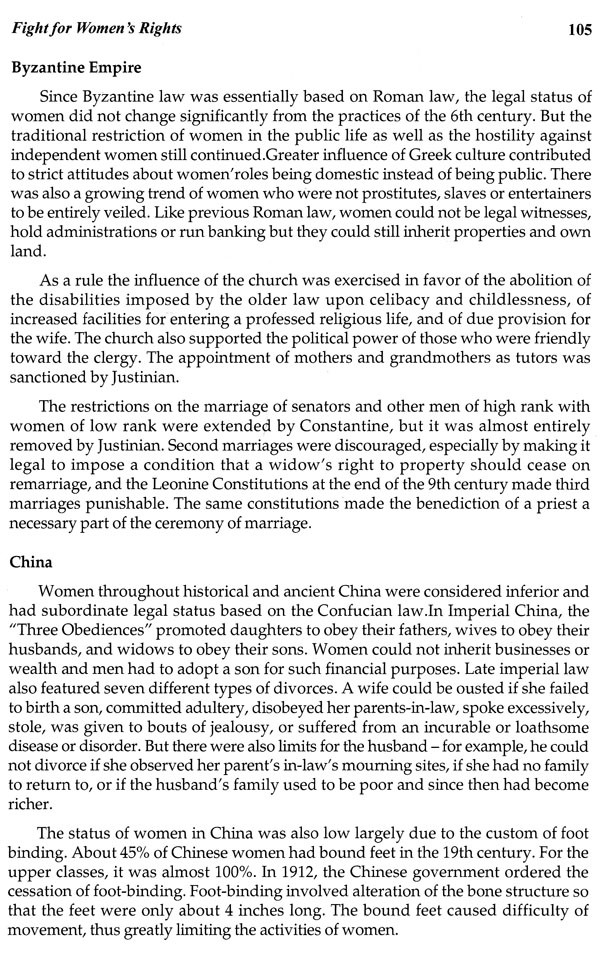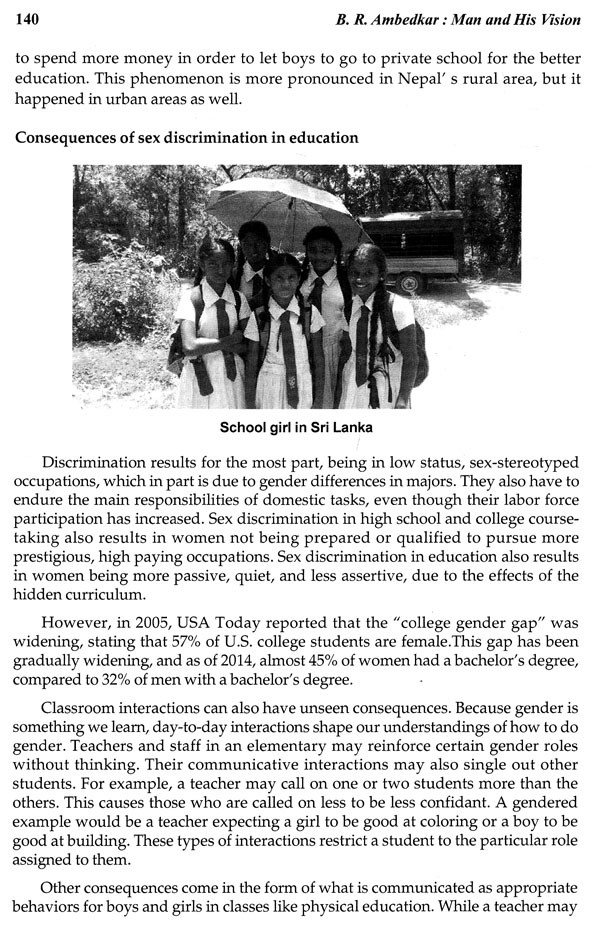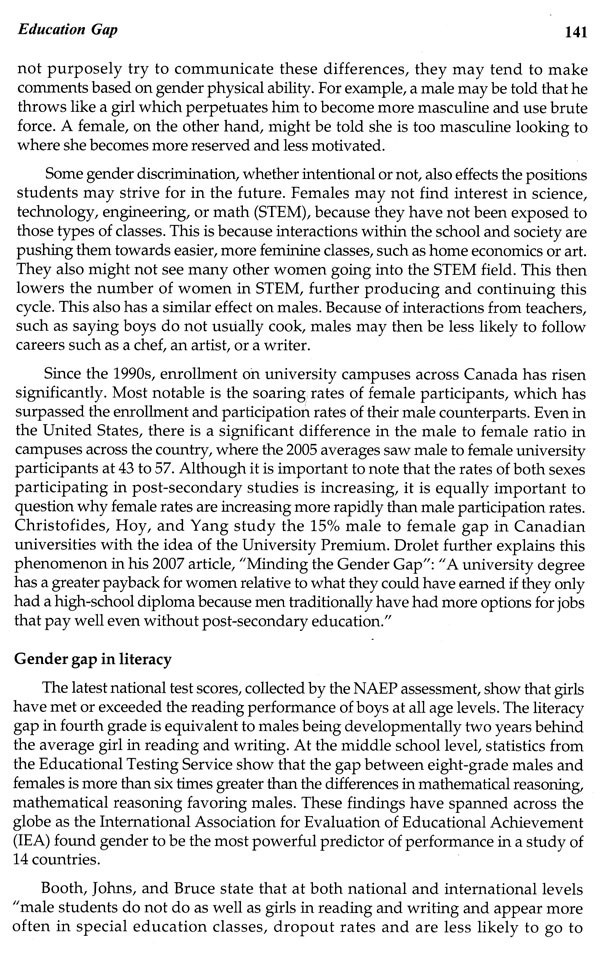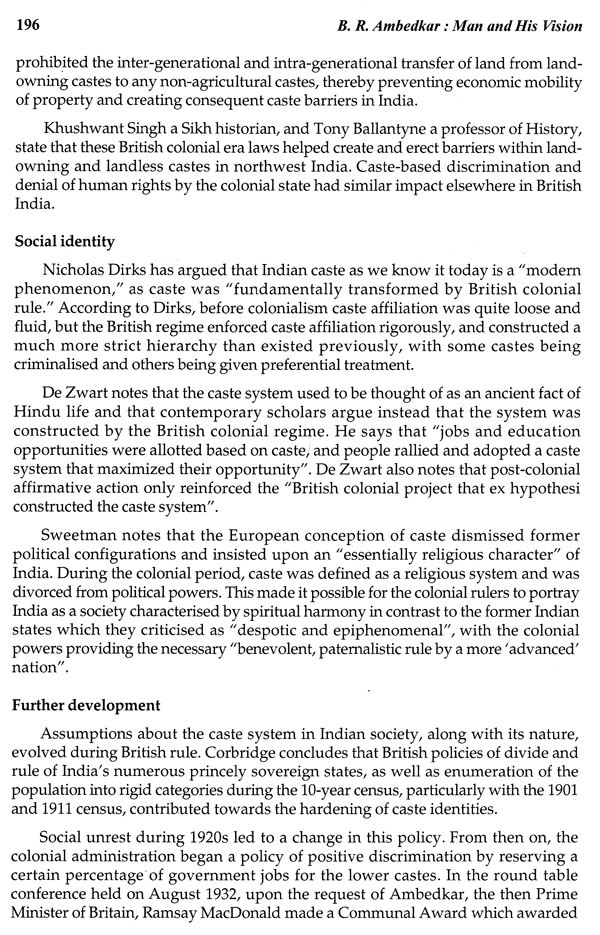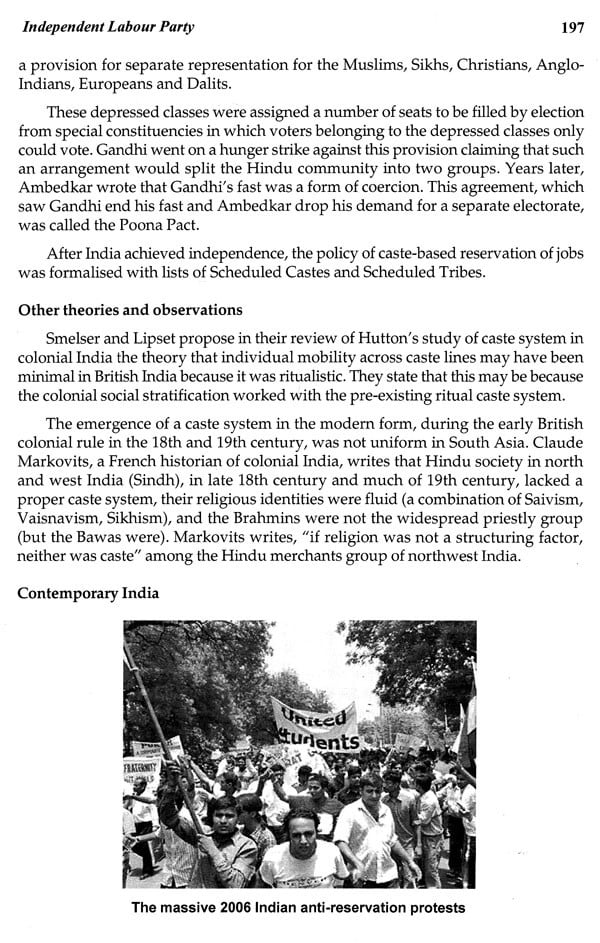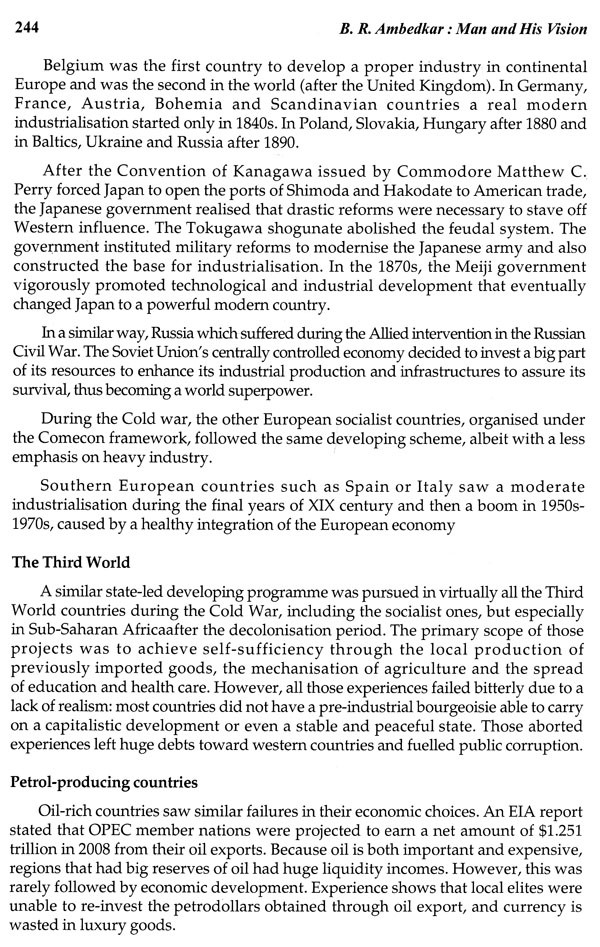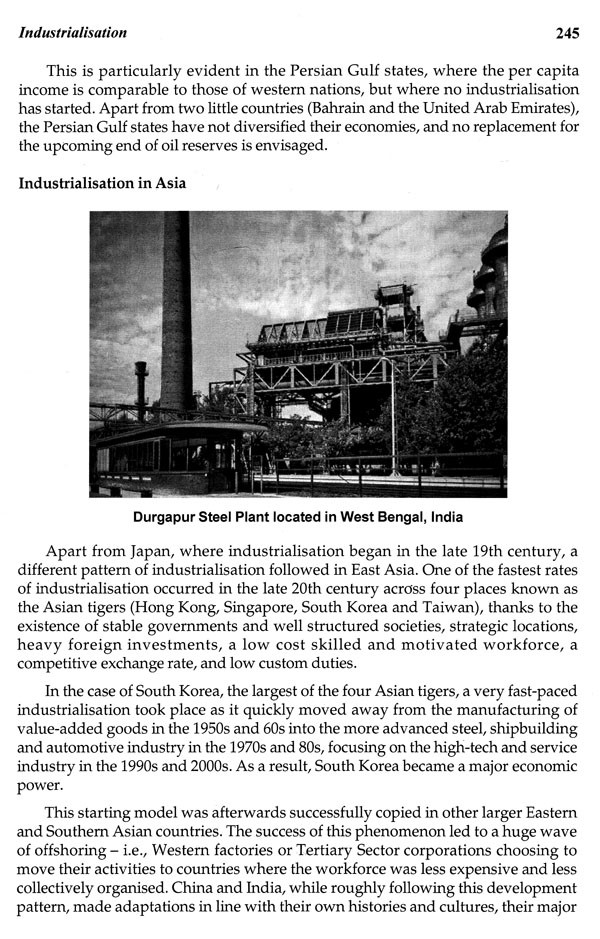
B. R. Ambedkar : Man and His Vision
Book Specification
| Item Code: | UAR500 |
| Author: | Arvind Prakash |
| Publisher: | Peridot Literary Books |
| Language: | English |
| Edition: | 2019 |
| ISBN: | 9788194194279 |
| Pages: | 280 (Throughout B/w Illustrations) |
| Cover: | HARDCOVER |
| Other Details | 9.50 X 6.50 inch |
| Weight | 570 gm |
Book Description
Bhimrao Ramji Ambedkar, popularly known as Babasaheb Ambedkar, was an Indian jurist, economist, politician and social reformer who inspired the Dalit Buddhist movement and campaigned against social discrimination towards the untouchables (Dalits), while also supporting the rights of women and labour. He was independent India's first law and justice minister, the architect of the Constitution of India, and a founding father of the Republic of India.
Professor Arvind Prakash is a prolific writer, and has in his credit, 17 books and more than 50 research papers published in various journals and volumes. He is the recipient of Dr. B.R. Ambedkar National Fellowship.
Bhimrao Ramji Ambedkar, (born April 14, 1891, Mhow, India- died December 6, 1956, New Delhi), leader of the Dalits (Scheduled Castes; formerly called untouchables) and law minister of the government of India (1947-51).
Born of a Dalit Mahar family of western India, he was as a boy humiliated by his high-caste schoolfellows. His father was an officer in the Indian army. Awarded a scholarship by the Gaekwar(ruler) of Baroda (now Vadodara), he studied at universities in the United States, Britain, and Germany. He entered the Baroda Public Service at the Gaekwar's request, but, again ill-treated by his high-caste colleagues, he turned to legal practice and to teaching. He soon established his leadership among Dalits, founded several journals on their behalf, and succeeded in obtaining special representation for them in the legislative councils of the government. Contesting Mahatma Gandhi's claim to speak for Dalits (or Harijans, as Gandhi called them), he wrote What Congress and Gandhi Have Done to the Untouchables (1945).
In 1947 Ambedkar became the law minister of the government of India. He took a leading part in the framing of the Indian constitution, outlawing discrimination against untouchables, and skillfully helped to steer it through the assembly. He resigned in 1951, disappointed at his lack of influence in the government. In October 1956, in despair because of the perpetuation of untouchability in Hindu doctrine, he renounced Hinduism and became a Buddhist, together with about 200,000 fellow Dalits, at a ceremony in Nagpur,
Bhimrao Ramji Ambedkar (14 April 1891-6 December 1956), popularly known as Babasaheb Ambedkar, was an Indian jurist, economist, politician and social reformer who inspired the Dalit Buddhist movement and campaigned against a social discriminationtowards the untouchables (Dalits), while also supporting the rights of women and labour. He was independent India's first law and justice minister, the architect of the Constitution of India, and a founding father of the Republic of India.
Ambedkar was a prolific student earning doctorates in economics from both Columbia University and the London School of Economicsand gained a reputation as a scholar for his research in law, economics, and political science. In his early career he was an economist, professor, and lawyer. His later life was marked by his political activities; he became involved in campaigning and negotiations for India's independence, publishing journals, advocating political rights and social freedom for Dalits, and contributing significantly to the establishment of the state of India. In 1956, he converted to Buddhism initiating mass conversions of Dalits.
In 1990, the Bharat Ratna, India's highest civilian award, was posthumously conferred upon Ambedkar. Ambedkar's legacy includes numerous memorials and depictions in popular culture.
A jurist (from medieval Latin) is someone who researches and studies jurisprudence (theory of law). Such a person can work as an academic, legal writer or law lecturer. In the United Kingdom, Australia, New Zealand, South Africa, and in many other Commonwealth countries, the word jurist sometimes refers to a barrister, whereas in the United States of America and Canada it often refers to a judge.
Thus a jurist, someone who studies, analyses and comments on law, stands in contrast with a lawyer, someone who applies law on behalf of clients and thinks about it in practical terms. There is a fundamental difference between the work of a lawyer and that of a jurist. Many legal scholars and authors have explained that a person may be both a lawyer and a jurist, but a jurist is not necessarily a lawyer, nor a lawyer necessarily a jurist. Both must possess an acquaintance with the term "law".
**Contents and Sample Pages**
